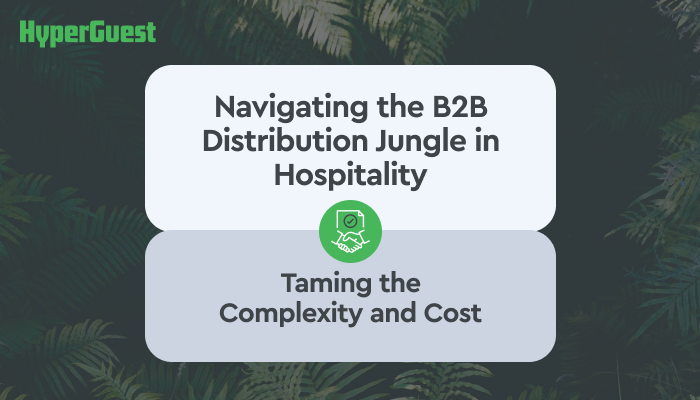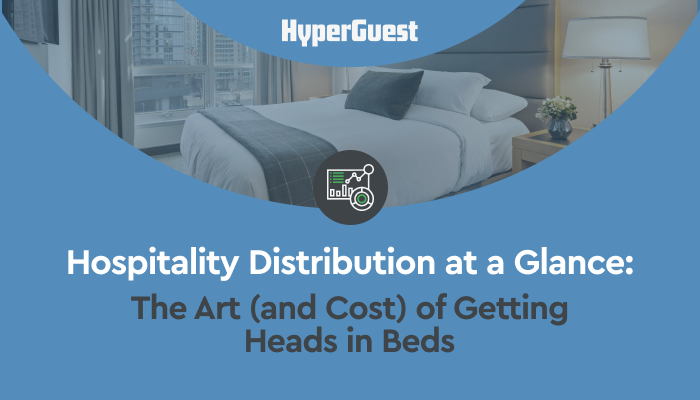The hospitality industry's B2B distribution landscape, particularly under traditional contracting models, has evolved into an intricate web of systems, each adding layers of complexity and inherent cost. As hotels sign the traditional contracts model, the initial intention of streamlined distribution often transforms into a convoluted network that challenges rate parity, control over sales conditions, and overall distribution costs.

Time-to-Connectivity / Need for Speed
One primary reason for the aforementioned challenges is the complexity and time-consuming nature of engaging with partners in the hotel industry. Traditionally, establishing each new connection entails a separate integration project, extensive data mapping, and rigorous testing processes. And this may take weeks or months to be finalized!
The Distribution Conundrum: A Journey Through the Jungle.
Imagine a hotel entering into a B2B traditional contracting partnership. Ideally, this relationship should simplify the distribution of room inventory to various sales channels, both B2B and B2C. However, what ensues is a cascade of intermediary transactions where these rooms are resold multiple times across different channels. The BedBank distributes to other wholesalers, regional OTAs, and even global OTAs, each adding their markup and conditions.
This multi-layered redistribution results in a chaotic market where the same room can appear on numerous platforms, often at varying prices. Regional OTAs, in particular, might offer these rooms on metasearch engines like Trivago, Google, and Kayak, often at rates lower than those advertised on the hotel's official website. This scenario not only undermines the hotel's rate parity but also erodes consumer trust.
The outcome of the redistribution of intermediaries
- Hotels reporting significant rate disparity issues, primarily due to intermediary markups and redistribution.
- Distribution costs can account for up to 40% (commission+discount+package) of a hotel's revenue, a significant increase from the pre-digital era.
- Hoteliers feel they are losing control over their sales conditions due to the multi- intermediary layers in the booking path.
Given the complexity, hotels need robust strategies to regain control over their distribution and manage costs effectively. For example:
- Transparent Contracting: Being meticulous in contract negotiations with BedBanks and other intermediaries can help set clear terms about redistribution rights, pricing, and sales conditions.
- Leveraging B2B direct integration: can provide more transparent and tamper-proof transaction records, ensuring that the distribution process remains controlled and traceable ( check out HyperGuest.com Marketplace model )
- Consider adopting a "Marketplace" model instead of traditional contracting. In this approach, hotels set the parameters, including commission structures, booking conditions, and availability timelines, without the need for pre-contracts. This allows for greater flexibility and full control in managing the distribution. ( check out HyperGuest.com ).
Advantages for Demand Partners
- No dependency on the fragmentation of the channel manager landscape
- Engage and produce bookings with hotels even before a traditional contract - and expand the relationship based on actual booking performance
By acknowledging the inherent complexities and adopting proactive strategies, the hospitality industry can mitigate the challenges posed by traditional contracting models, ultimately leading to a more streamlined and cost-effective distribution process.






.png)



.png)
.jpeg)
.jpeg)
.png)






